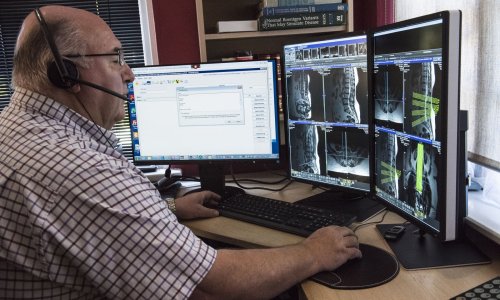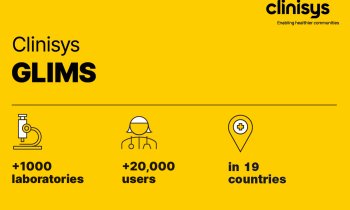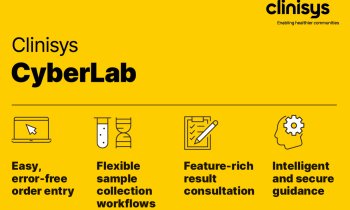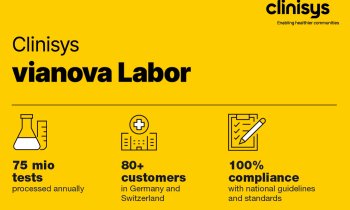News • International SOS Foundation
Guide to Teleconsultation Services for the Mobile Workforce launched
International SOS Foundation Launches New White Paper, endorsed by the International Society for Telemedicine & eHealth and authored by Leading Legal Authority, Nathaniel Lacktman, Esq. and the International SOS Group Medical Director for Assistance, Dr Neil Nerwich.

As the global Telemedicine market increases rapidly1, the International SOS Foundation has produced a guidance paper 'Teleconsultation Services for the Mobile Workforce; Considerations & Guidelines for the Provision of Global Services in Compliance with Regulations & Best Practice Clinical Standards of Care'. Endorsed by the International Society for Telemedicine & eHealth (ISfTeH), the paper provides multi-national organisations with insight into essential considerations when assessing a teleconsultation2 service. It is authored by Nathaniel Lacktman, Esq., Partner at leading law firm Foley & Lardner LLP where he is Chair of the firm's Telemedicine and Digital Health Industry Team, and Dr Neil Nerwich, International SOS Group Medical Director, Assistance.
Nathaniel Lacktman, Esq., Partner at Foley and Lardner LLP, commented, "An estimated 96% of large companies in the USA alone provide access to teleconsultation services for their staff on a domestic basis3. Attention is now shifting to how it can be applied on a global basis to support multi-national organisations and their mobile, connected, and increasingly millennial, global travellers and expatriates. Teleconsultation services may seem like an easy solution to global medical care, but there are some major legal considerations that need to be assessed. When multi-national organisations are looking for the best practices to protect the health of mobile employees, they must consider the need for a service to have appropriate licensing and medical regulations at a patient's location. Also the ability to provide any subsequent support, such as providing locally dispensable prescriptions, is critical."
Prof. S. Yunkap Kwankam, Executive Director, International Society for Telemedicine & eHealth (ISfTeH), "It is clear that the future of health is digital health4 and it is an environment which, to date, has not kept pace with the changes and spread of information technology of other sectors. However, much remains to be done in terms of the regulatory environment within which digital health takes place. Industry players, governments and consumers alike need to recognise that we cannot simply transfer the consumer retail paradigm into the health care market. And major data breaches by hackers, sometimes involving the compromise of tens or hundreds of millions of data records, are only one aspect that adds fuel to these concerns. Insightful and guiding documentation such as the new 'Teleconsultation Services for the Mobile Workforce' are essential in the appropriate and safe implementation of such services."
The 'Teleconsultation Services for the Mobile Workforce' paper includes:
- Country level review of legal requirements for the provision of teleconsultation and subsequent recommendations and treatment
- Guidelines on clinical best practices, taking into account details such as the understanding of a local healthcare environment, clinical expertise of current disease threats at the patients location and the integration into the local healthcare system when required
- Case studies demonstrating usage in both a corporate and educational sector scenarios
- List of global best practices to help guide multi-national organisations in assessing a teleconsultation service
Dr Neil Nerwich, commenting on behalf of the International SOS Foundation, said, "Teleconsultation can be appropriate to a number of medical needs when delivered in consideration of medical best practice. It can successfully provide rapid access to care, thereby minimising time out of the working environment and the subsequent impact on business continuity. However, along with legal considerations, issues such as local medical knowledge and accessibility to local medical care resources when necessary need to be considered. Having an efficient and medically holistic way to support mobile employees wherever they are in the world is essential to business resilience. Our aim in producing this paper is to support organisations in identifying how to achieve this in the best way for their employees and business."
To read the white paper, click here.
1 Global telemedicine market was valued at USD 32,842.48 million in 2017, is expected to witness a CAGR of 18.83% over the period 2018-2023. www.mordorintelligence.com/industry-reports/global-telemedicine-market-industry
2 Teleconsultation, a category of telehealth, describes the clinical practice of medicine directly between a physician and patient - delivered remotely, typically via video.
3 www.businessgrouphealth.org/news/nbgh-news/press-releases/press-release-details/?ID=334
4 Global policy declarations, such as the passage by the 71st session of the World Health Assembly of a resolution on Digital Health in May 2018.
Source: ISfTeH
09.01.2019











